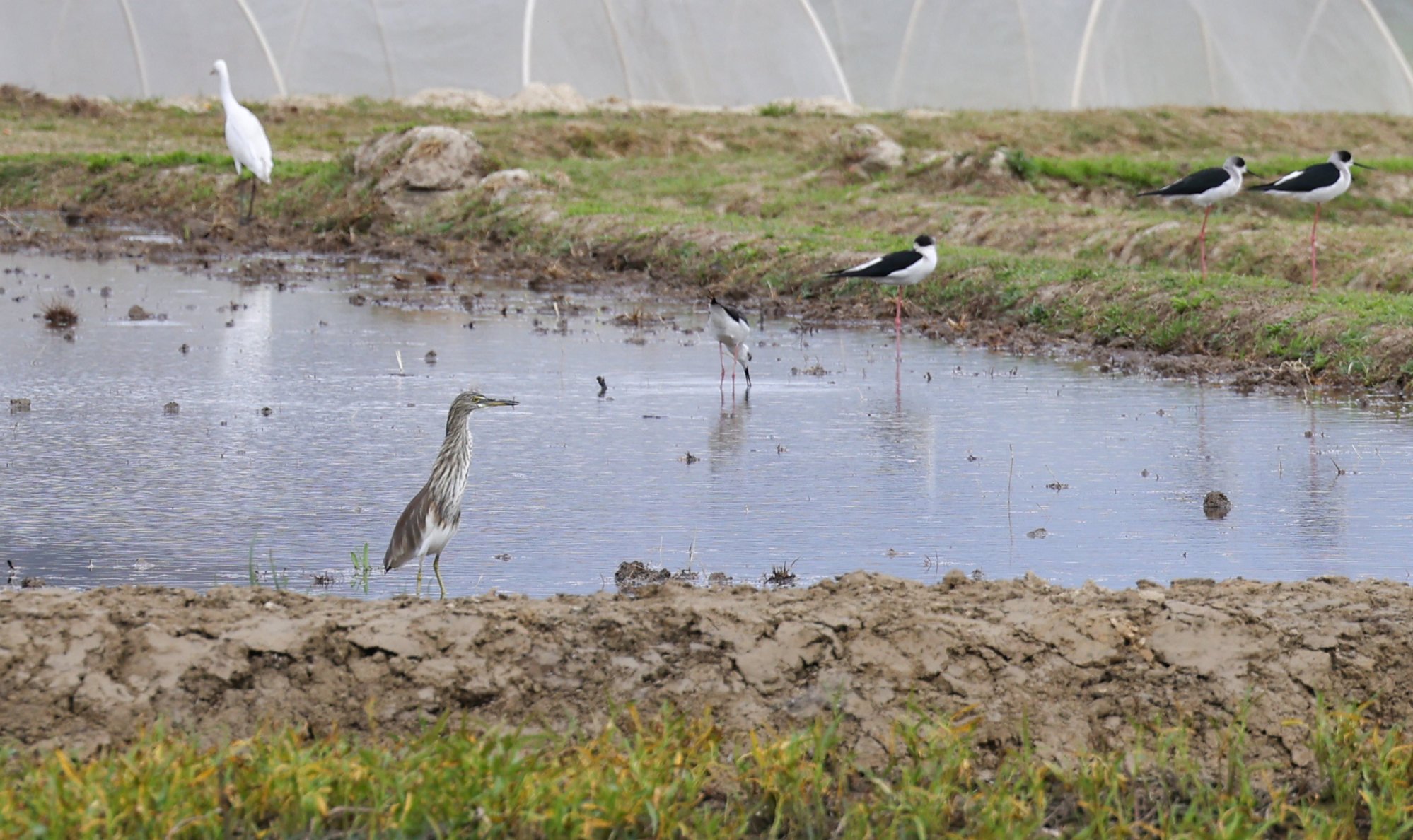The project will take up more than 600 hectares (1,483 acres) of land near the border, with half of the site earmarked for developing the innovation and technology industry. The rest will become a town centre with 54,000 flats.
The development will occupy about 150 hectares of the Wetland Conservation Area, with authorities planning to fill in 90 hectares of fish ponds as early as 2026. A proposed 338-hectare wetland park at Sam Po Shue will compensate for the ecological loss.
Wong Suet-mei, a senior conservation officer at the Bird Watching Society, said: “Lee’s comments may mislead the public into thinking that all the fish ponds are abandoned in San Tin. This reflects that the government may not be very clear about the ecological functions of inactive ponds.”
Half of the ponds in the conservation area were still active, contributing to a third of the local freshwater fish supply, while the rest were only abandoned in the last five years, she added.
The senior conservation officer said abandoned ponds still had ecological value as they offered a habitat with less human interference for Eurasian Otters and some species of birds.

A social media post from wildlife photographer Daphne Wong recently went viral when it shared photos of hundreds of migratory birds including black-faced spoonbills, Eurasian spoonbills and grey herons foraging in an abandoned fish pond in San Tin in February.
Lee earlier on Tuesday defended the Advisory Council on the Environment’s conditional endorsement of an impact assessment report on the technopole after a four-hour meeting on Monday.
The chief executive said the project would “proceed as planned” and fill in fish ponds in the area in accordance with all legal requirements.
“If the fish ponds are abandoned or even have no fish in them, this can’t be a good and proactive environmental protection policy,” he said ahead of a weekly meeting with the Executive Council. “I am confident that with proactive conservation policies, our overall environment and ecology can be enhanced effectively.”
Green light for environmental report on planned Hong Kong tech hub near border
Green light for environmental report on planned Hong Kong tech hub near border
Chan Hall-sion, a senior campaigner with Greenpeace, said Lee’s remarks could confuse the public. She argued that research showed abandoned fish ponds formed an important part of ecosystems and promoted wildlife diversity.
Green groups and academics were not convinced by the government’s argument that the resulting habitat loss from filling up a large area of fish ponds could be “compensated” by constructing a smaller wetland conservation park, Chan said.
“In the context of the ‘no-net-loss’ wetland principle widely applied in Hong Kong and elsewhere, the area plays a crucial role, as important as quality and other parameters,” she said. “We are disappointed that the government reinterpreted the principle in the San Tin project without solid scientific support.”
Reject impact assessment for Hong Kong technopole project, green groups say
Reject impact assessment for Hong Kong technopole project, green groups say
In February, the Town Planning Board agreed that establishing a Sam Po Shue Wetland Conservation Park could make up for the ecological loss caused by filling in the fish ponds.
Conservancy Association campaign officer Kristy Chow Oi-chuen, however, said the project lacked data on whether the habitat loss could be properly compensated.
The association is among 10 green groups that earlier slammed the environmental impact assessment as flawed, citing 35 violations of statutory requirements and guidelines, as well as 27 serious technical assessment and data errors.
The advisory council on Monday endorsed the technopole’s environmental impact assessment with eight conditions.
The conditions include authorities being required to submit a habitat creation and management plan that lists out compensation measures and future monitoring parameters.
But Wong of the Bird Watching Society said the government should have provided such a plan when they filed the environmental impact assessment, according to the previous practice for projects that occupied wetlands.
She added that it was unclear whether authorities would need to face any consequences if the ecological value dropped significantly in spite of any compensation initiatives.
Final approval of the environmental impact assessment report rests with the city’s director of environmental protection.
The technopole project is also awaiting approval from the Town Planning Board, which assesses land zoning applications and passes recommendations to the city leader and government advisers to have the final say.

